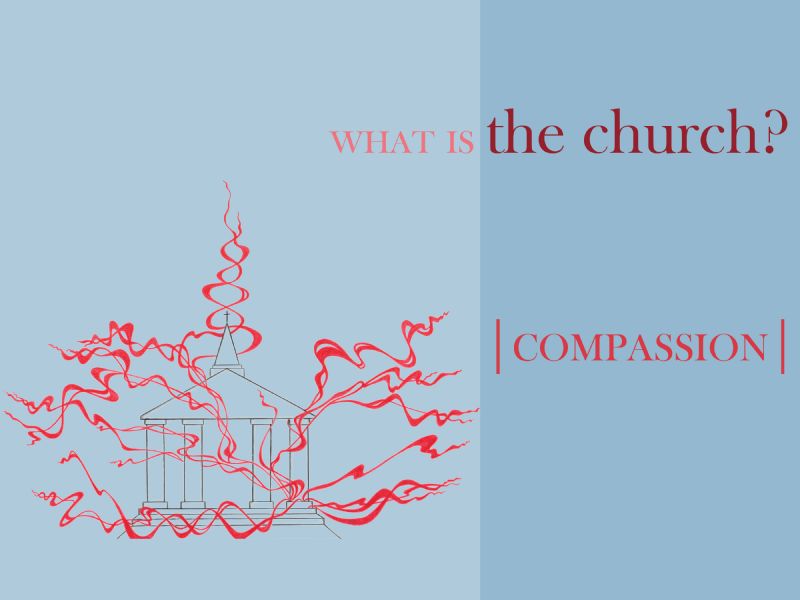
Acts 3:1-10
As Peter and John were walking towards the temple in Jerusalem, they encountered this lame beggar. It was likely that there were many people begging along the way towards the steps of the temple, so why did Peter and John stop for this one? It is clear to see that the Holy Spirit led Peter and John to stop and look straight at this lame man, they were acting under the direction of the Holy Spirit. Peter and John looked beyond the cries of the man, beyond his temporal need and they addressed his bigger need. He did not need money, he needed to walk. This miracle provides for us a perfect illustration of what salvation is like.

He was born lame; we also are born in sin, we are unable to walk in a way that pleases God, our sinful nature is in rebellion to God.
The man was poor; without Jesus Christ we are completely bankrupt before God.
But then God intervened in his life and he was healed. He was not only healed physically, but he was healed spiritually, as he believed in Jesus Christ as his savior. And what was his response? He immediately recognized the grace of God on his life and leapt around praising God for his changed life.
You see what has happened here? The miracle of healing, led to the proclamation of the Gospel, which led to repentance and salvation.
Focusing on compassion as the fourth pillar of the church, we can all agree that it is vital for the church to be involved in caring for the poor, the hurting, the sick, the disabled, the unborn and other issues, but we must be involved in them for the right reason.
In this day and age when we are surrounded by so much pain and injustice, it is easy to be overwhelmed by the enormous needs all around us. And if we are not careful we will quickly become a church that is so focused on meeting social needs that we stop telling people about the Good News of Jesus Christ.
Whenever the church has become focused on a social gospel rather than the true gospel message, they have declined and become nothing more than just another social organization.
We need to be discerning, we cannot simply ignore the social issues of our day, Jesus certainly did not, he healed many people, confronted injustice and cared for the downtrodden. How do we make sure that our concern for social issues does not overwhelm us and diminish our calling to share the gospel and to make disciples? As a church and as individuals, how do we determine who to help? The key is found in Acts 3. This scene took place right after Pentecost, the Holy Spirit had been poured out on the early church. Peter and John were walking with new eyes, they were seeing things differently. They had the Holy Spirit directing them and leading them. Peter and John were probably asked by many beggars for help as they walked towards the temple, but they were led to this one.
Not only that, but they were directed to the real need of the man, sure he needed money, but he needed a savior more desperately. God met that poor lame beggar that day, and his life changed along with thousands of others by the power of the name of Jesus.
Compassion under the guidance of the Holy Spirit leads to eternal results, not temporal relief. In our own strength and resources, we can at best provide some temporary relief to someone in need, but our resources coupled with the power in the name of Jesus, will lead to a life transformed and souls saved.
So we have identified that we are called to help those in need, to be compassionate and as that we are to be discerning in who we help, we must be led by the Holy Spirit – we must pray and ask the Lord for wisdom and discernment in each and every opportunity that comes our way to help.
But there are also dangers and snares along the way, because we are human we have some pitfalls we can easily encounter in the area of compassion.
1. Trying to earn the favor of God.
Many people think that by doing good things for people, by helping the poor, by giving to good causes, we in some way can be good enough for God. The truth is that we can never be good enough, we are all sinners and deserving of eternal punishment. But the wonderful news of the Gospel is that we are not saved by works, we are saved by grace (Ephesians 2:8-9.) Then our serving the Lord is out of appreciation and gratitude for all that the Lord has done for us.
“the child of God works not for life, but from life; he does not work to be saved, but because he is saved.” Charles Spurgeon
2. Conditional Compassion
This is a major pitfall that we face in our lives, the danger of conditional compassion. We help someone out, but then we expect them to make wise choices and we will continue to help them unless they blow it and don’t live up to our expectations. We determine the rules – we determine when the person we are helping doesn’t deserve it anymore and we turn our backs on them.
3. Limited by our perceived resources.
We so readily make excuses when the Holy Spirit nudges us to be compassionate; we can’t afford it, we don’t have time or maybe it is inconvenient. The real lesson to us from this is that when we come to Christ and make him Lord of our lives, we give up any rights to our own possessions. We don’t own anything anymore. All we have belongs to our Lord – that is what it means to be a Christian (see Luke 18:18-24).
But as we give it all to him, we find that he will guide us to use our resources to help those in need for the Kingdom of God, for His names sake.
“Service that costs nothing accomplishes nothing”
Don Whitney
We have an extravagant God, let us be extravagant in our compassion
As we continue to be a missional church, caring for our community and assisting in missionary activity around the world, we need to constantly ask the question, what is the real need here? Just like Peter and Paul, we need to be led by the Holy Spirit to help where we can, but look beyond the temporal needs and see the eternal need.
